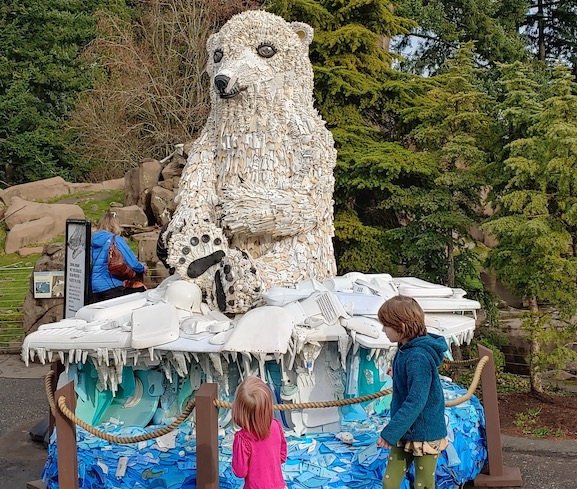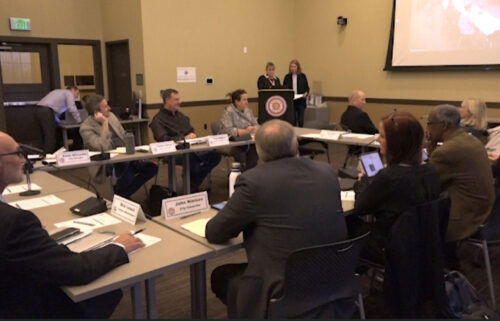The art of trash: Ocean plastics animal sculptures dive into waste issue

By Eric Tegethoff, Oregon News Service
BANDON, Ore. -- Researchers estimate 19 billion pounds of plastic get into the ocean each year.
What washes back to shore could be trash -- or art.
Bandon resident Angela Haseltine Pozzi founded the Washed Ashore Project 10 years ago. She says the nonprofit group has worked with more than 10,000 volunteers to pick up garbage from Oregon beaches.
"We process that into art supplies in a way that we then turn into the giant animal sculptures of the animals that are threatened by marine debris," she relates.
Hasetine Pozzi says volunteers have picked up an estimated 26 tons of garbage and created 80 works of art, including 11-foot tall penguins and a 16-foot long parrotfish.
The Washed Ashore Project has four traveling exhibits educating the public on the dangers of plastics in the ocean.
Haseltine Pozzi says she's a fifth generation Oregonian and was shocked to see the beaches she grew up on covered in plastic when she moved to Bandon in 2007.
That includes a yearly deluge of water bottles from the 2008 Beijing Olympics, which still wash up on the Oregon coast.
"Then I found out that the animals are eating it and it's getting in our food chain, and I was like, 'I have to do something to save the ocean!'" she states. "This is the most sacred place on Earth. We can't be destroying it."
Haseltine Pozzi says people at her exhibits have cried thinking about the scale of the plastic trash issue.
"These are beautiful works of art, but it's a horrifying reality that they're all made with garbage picked up off the beaches," she states.
But Haseltine Pozzi notes that people have the power to turn this around. Folks can use reusable bags, coffee cups and water bottles, to start. She says people also can push corporations to change.
"We can demand biodegradable materials," she stresses. "We can force our hand as consumers and make changes. It's happened in the past."
The Washed Ashore Project has exhibits on display at the Oregon Zoo, Oakland Zoo, The Florida Aquarium and Smithsonian National Museum of Natural History in Washington.



